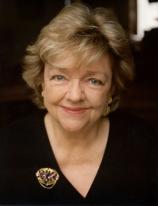Evening Class
Review
Evening Class
Sometimes it's the embossed title or a scintillating cut-away that draws a reader's eye to a particular book on display. It may be the artist's rendering of a voluptuous vixen or a chiseled hero that causes a glance to rest on...or pass by...certain covers. Perhaps even something as simple as texture and color may lure a reader to a book. Publishers know this and spend a fortune on design and outlay to catch and keep an eye long enough for a hand to follow with hard coin.
How many times have you found your own hand outstretched toward an unknown book solely because of its outward appearance? You might read the inside flap, or even the first paragraph itself --- but only to confirm what your subconscious has already told you...that this is a book worth reading if it delivers on the promises so prominently displayed.
Big IF. The text may bear no relation to the picture; the artist may be more talented than the writer; or the wrapping may be bright but the contents dull. However, sometimes, just sometimes, you CAN judge a book by its cover. EVENING CLASS is one such book.
The jacket of EVENING CLASS depicts a room. It's a room any book lover would covet, with plenty of shelves and a working desk with a good lamp. There's a plant, a vase of flowers on a coffee table, a corner of a wall decorated with picture frames, a colorful rug on the floor. And books, plenty of books. Sunlight softens a window seat set comfortably beneath mullioned windows framed in cheerful curtains. It's a room that evokes the essence of Binchy's story. I find myself gazing at it with a satisfied smile.
EVENING CLASS is the first Binchy novel to be set in current times, taking place in contemporary Dublin, with side roads into Italy. The story centers on Aidan Dunne, a schoolteacher trapped in a life no longer recognizable. Alienated from his wife and daughters, embittered by the loss of an expected promotion, Aidan finds solace in the memories of his travels to Italy. Besides converting the dining room into a piece of Italy by assembling "little bits of his dream," Aidan also seeks new hope in a pet project: organizing a new evening class called Introduction to Italian.
His path soon converges with that of Nora O'Donoghue, called simply "Signora." Signora, a woman disowned by her Irish family after spending 26 years in Sicily near the married man she loved, starts a new life in Dublin by accepting a position as the Italian teacher for Aidan's evening class. Aidan, ineffectual and eccentric to his family, is only kind and enthusiastic in Signora's eyes.
"I've come to talk to you about Italian, Mr. Dunne," says Signora when she first meets Aidan.
"Do you know that I KNEW some day someone would knock at the door and say that to me," Aidian responds.
Bit by bit we learn more about the participants in EVENING CLASS, people from all walks of life, whose own lives are changed by the exquisite challenge of learning Italian. Signora injects fun into every lesson, transforming even the mundane into the exotic. Bill, a staid bank clerk who takes the class as a means to hold onto Lizzie ("the most improbable person in the world...a beautiful, troublesome bad debt"), becomes Gugliemo, as Lizzie becomes Elisabetta. Kathy, a hardworking, awkward student in her other classes, shines as Caterina in Signora's class, coming to a new level of understanding about herself and her self-sacrificing sister, Fran, now Francesca. Lou, a small-time hood with a "dark scowl and particular way of murdering the Italian language", becomes Luigi. The wealthy Connie becomes Constanza, finding the strength to face the truth of her philandering husband's deeper crimes. The slow-witted Laddy is metamorphosed into Lorenzo, learning Italian because of a chance encounter with Italian tourists. Barry, now Bartolomeo, has his life with his suicidal mother invaded by Fiona, a hospital coffee shop waitress and best friend of Grania and Brigid Dunne (the daughters of Aidan with secrets of their own).
As with all of Binchy's books, the lives of the various characters in EVENING CLASS intertwine in unexpected but believable ways, culminating in a class trip to Italy, where new adventures await. This is Maeve Binchy at her best. Gaze on the book jacket of EVENING CLASS, and as you do so think of Signora's words: "I'm not very interested in possessions...but a lovely quiet room with light coming in a window and a desk in good wood, and all your memories, and books and pictures on a wall...that would be very satisfying indeed." Then, take your eyes off the cover, get comfortable, and READ the book: It's very satisfying indeed.
Reviewed by Jami Edwards on March 9, 1998
Evening Class
- Publication Date: March 9, 1998
- Genres: Fiction
- Mass Market Paperback: 544 pages
- Publisher: Dell
- ISBN-10: 0440223202
- ISBN-13: 9780440223207











